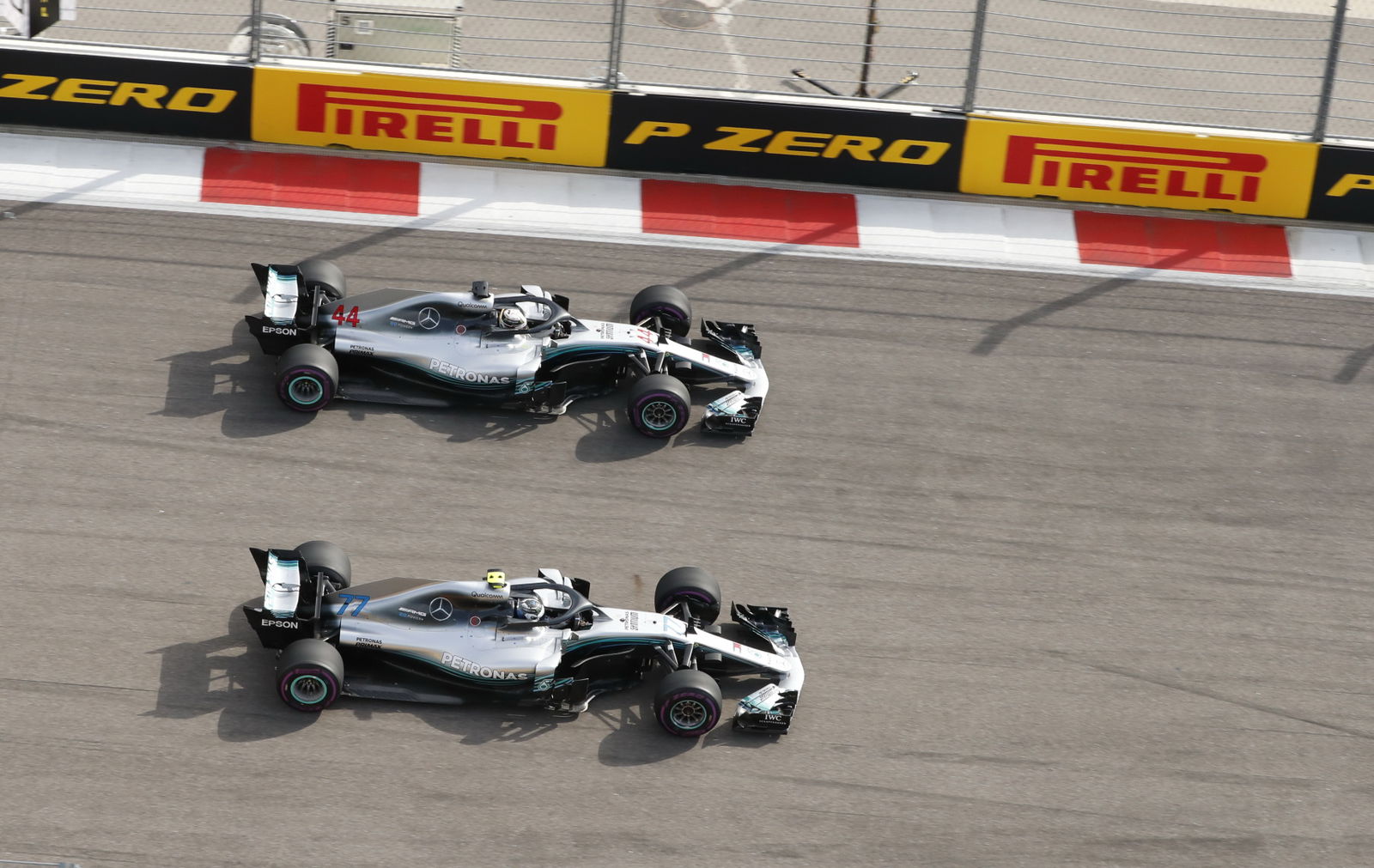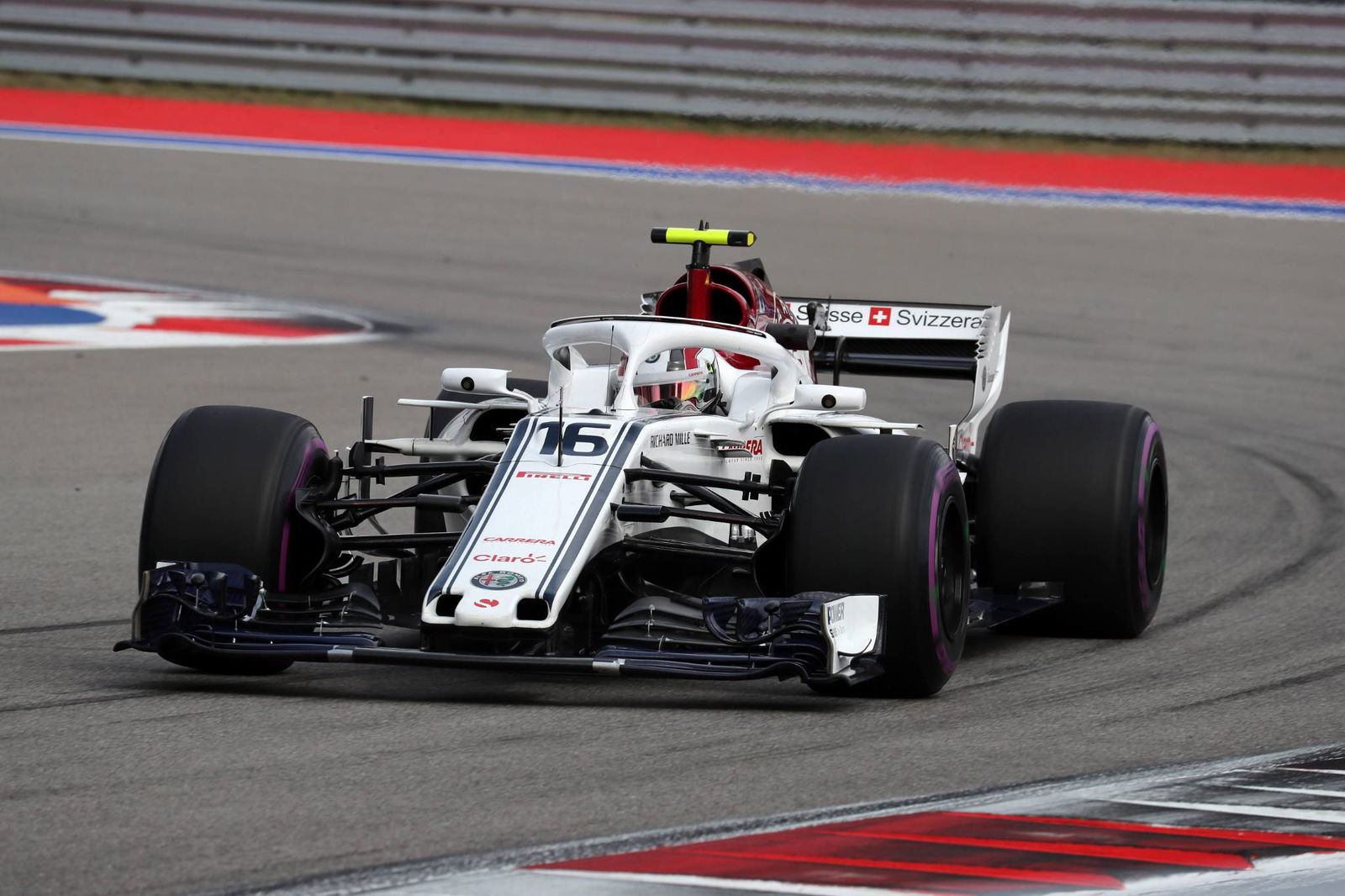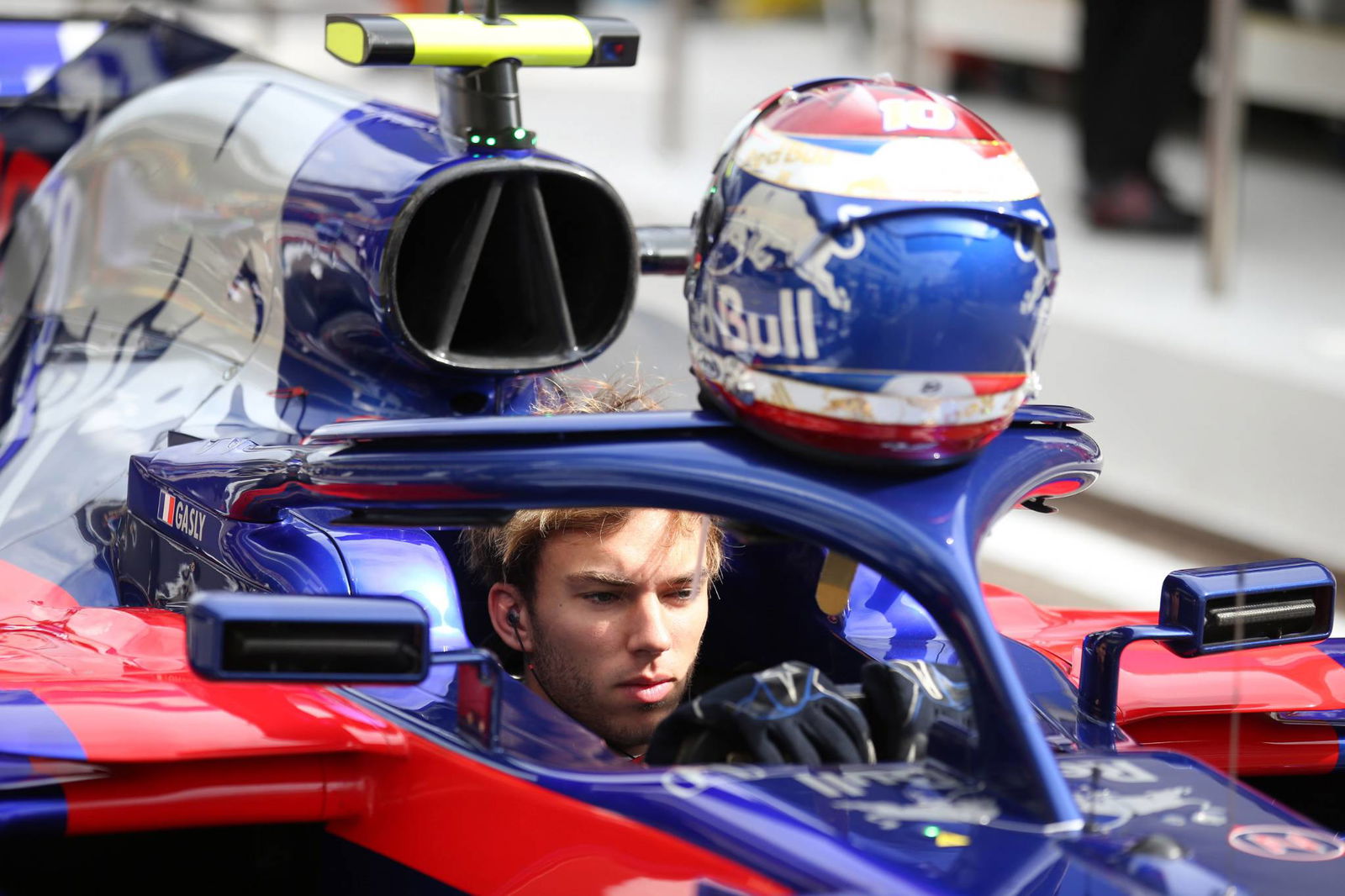F1 Race Analysis: Why Mercedes was forced to use team orders in Russia
After Mercedes stormed to a front row lock-out in Formula 1 qualifying for the Russian Grand Prix on Sochi on Saturday, it was somewhat predictable that the topic of team orders would be a major talking point after the chequered flag had fallen on Sunday afternoon.
Mercedes may have run through all the various scenarios and toiled with the idea of invoking a strategy call to favour one driver over another, but as is often the case with best-laid plans, none of them were required when it really counted.

After Mercedes stormed to a front row lock-out in Formula 1 qualifying for the Russian Grand Prix on Sochi on Saturday, it was somewhat predictable that the topic of team orders would be a major talking point after the chequered flag had fallen on Sunday afternoon.
Mercedes may have run through all the various scenarios and toiled with the idea of invoking a strategy call to favour one driver over another, but as is often the case with best-laid plans, none of them were required when it really counted.
A storm hit Mercedes in Sochi that meant it felt forced to use team orders, sparking controversy as Valtteri Bottas gave up the chance to score his first F1 win of the year to aid teammate Lewis Hamilton’s title aspirations.
It was a move that left a bitter taste in the mouth of many - including those at Mercedes - as the team engineered a race result that means Hamilton can afford to finish P2 in each of the remaining five races this year and still win the title.
But the team did not enter Sunday’s race with the intention of Hamilton winning. Instead, it moved to see off a perceived threat from Vettel and Ferrari - and in doing so sparked a controversy leading to comparisons with some of Ferrari’s team order calls in past years.
“We told them they could race each other but just be careful of each other; remind yourself of the situation we are in for the championship, for the drivers’ and constructors’ championship, and then we would let things go,” Mercedes F1 chief Toto Wolff explained.
“We also told Valtteri that if everything would be planning out, if we were running one and two at the end of the race, that we would leave it like this unless we would feel under threat.
“We felt we needed to let them race. Valtteri outqualified Lewis, yesterday he was on pole, and we felt if it was going fair and square, we would not interfere to the guys racing each other.
“We interfered at the moment when we saw P2 was at risk. This is when we took the decision and we changed it, and we stuck to the decision.”
It seemed early on in Russia that Bottas was going to chalk up his first win of the season. He helped Hamilton stay ahead of Vettel at the start by offering a tow on the run to Turn 2, and then kept his teammate at an arm’s length through the first stint. Bottas was given priority in the pits - although Wolff did concede it was considering bringing Hamilton in first - and looked on course to finally break his win drought.
It was a mistake by Mercedes that was in fact the catalyst for Hamilton’s victory in Russia. Instead of immediately bringing the Briton into the pits one lap after Bottas, the team’s deliberations about how to play the strategy caused it to pit Hamilton one lap too late - allowing Vettel to come in, get the undercut and move up to a net P2.
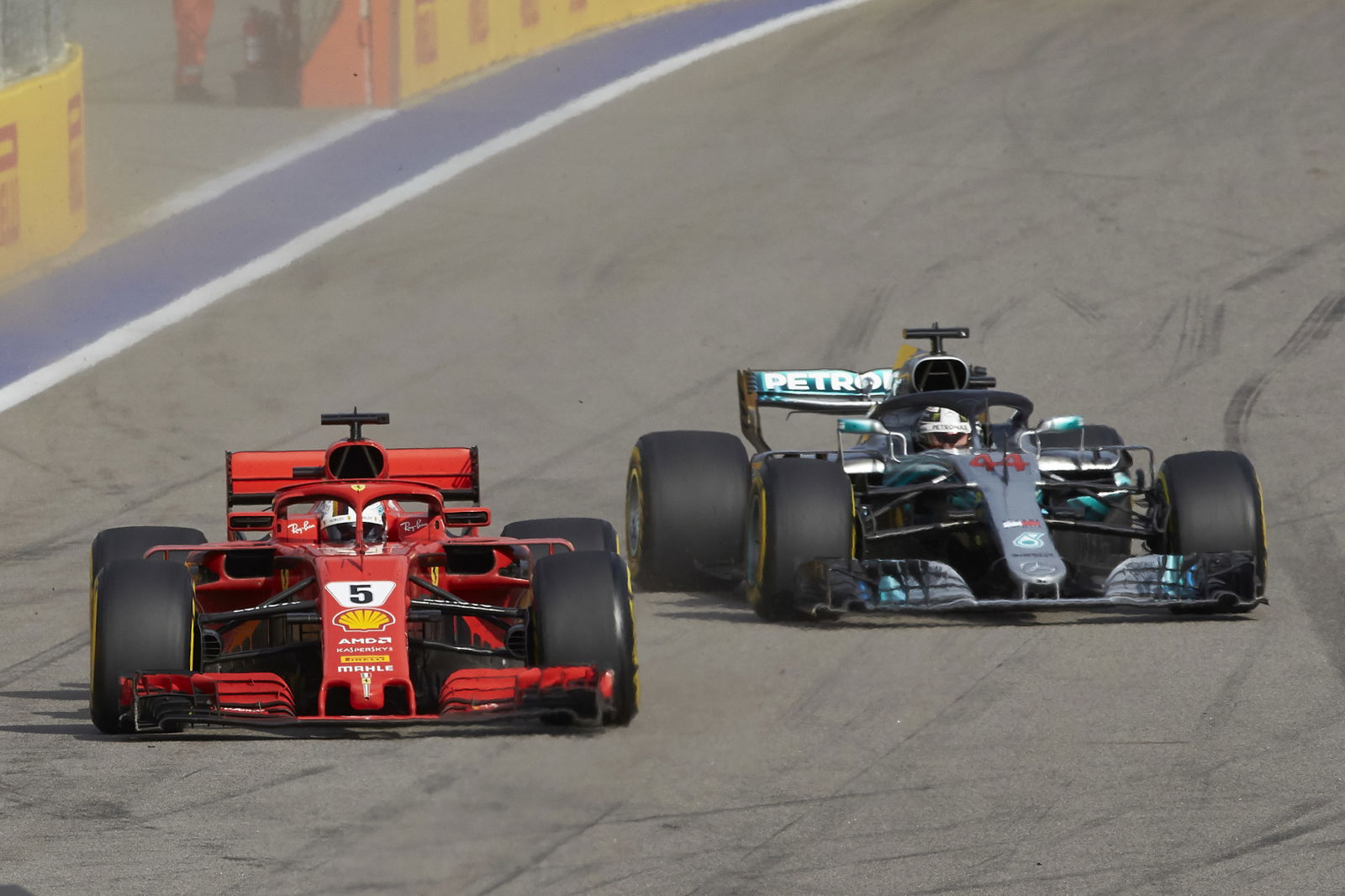
“We made the call, the wrong call was to come out behind Sebastian, we lost the position. At that stage, the worst case actually happened,” Wolff said.
“By being sporting, we lost the position with Valtteri, because we could have pitted Lewis first and secured the win with Lewis, but we pitted Valtteri to stay ahead of Vettel, and we lost the position. We were P3, and I felt like an idiot to be honest.”
Hamilton retook the position from Vettel with a superb overtake at the inside of Turn 4, offering fans an all-too-rare moment where the title protagonists were actually fighting wheel-to-wheel on-track in 2018. But in doing so, he blistered his left-rear tyre, leaving Mercedes sweating on whether he’d get to the end of the race on the Softs.
“With these tyres, once you blister them, it’s pretty normal, we saw in Spa you have to pit another time. We saw with Ferrari in Monza, they had a bad blistering problem also,” Wolff said.
“So imagine a scenario, pitting another time with Lewis and finishing sixth or seventh. Finishing sixth, rather than winning the race. That was the pressure moment where we needed to call.”
That is the points swing that put fear into Mercedes. With Hamilton a possible sixth and Vettel second, the gap at the top would have dropped to 30 points with five to go. Mercedes didn’t want to risk a situation where come Abu Dhabi it would be left ruing its call.
“Somebody needs to be the baddie sometimes, and it’s me today,” Wolff said.
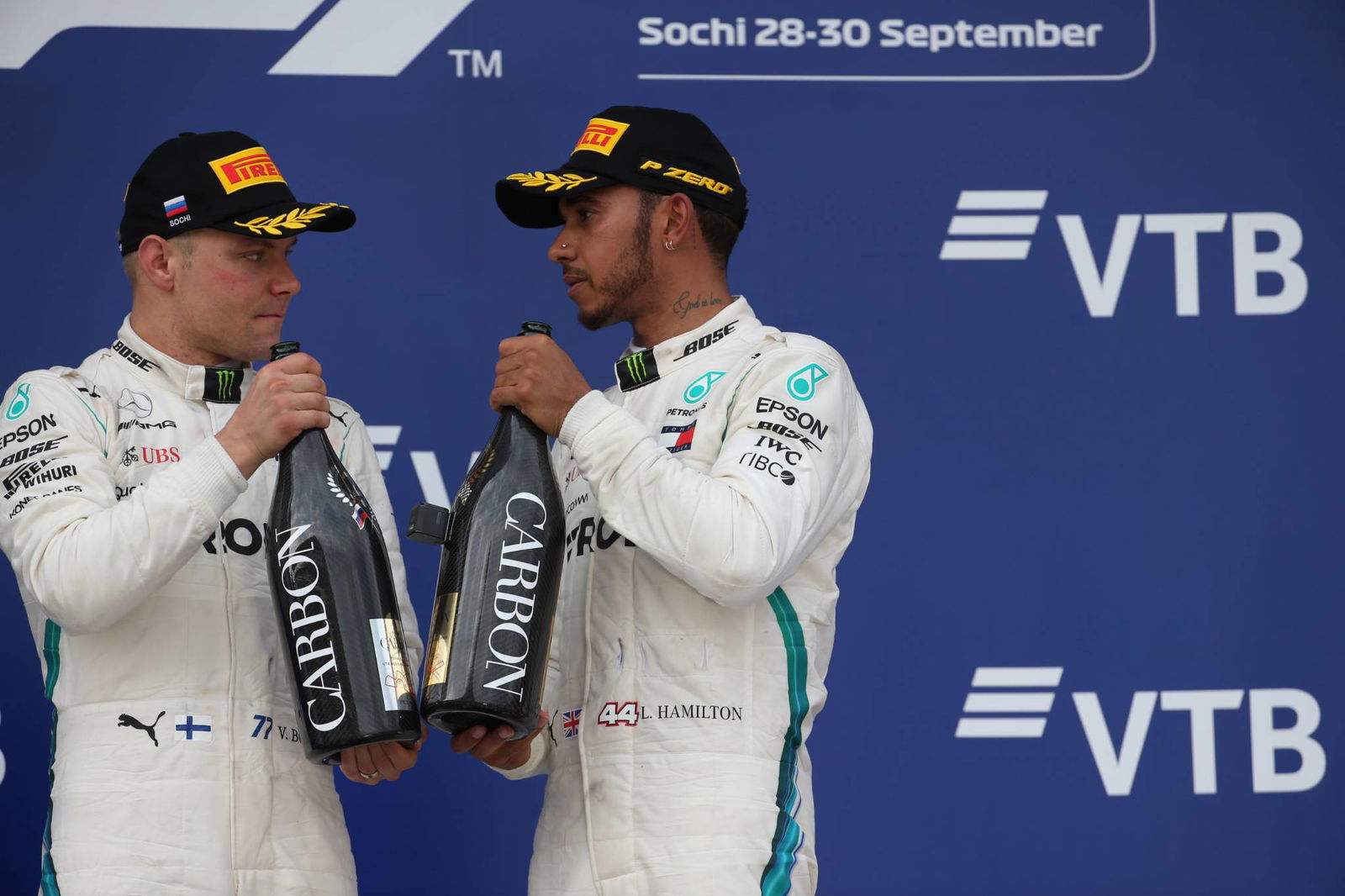
“You need to weigh it up. What do I opt for, to be the baddie on Sunday evening, or do I want to be the idiot in Abu Dhabi at the end of the season? I’d rather be the baddie today than the idiot at the end of the year.”
On Lap 25, the call was given for Bottas to move aside. With a massive lift on the run to Turn 13, Bottas let Hamilton past - the switch was complete.
From there, Hamilton managed to control the race with no problems at all, while Bottas’ own pace to Vettel was always decent. There were few fears for either driver that they would be caught or beaten, clinching a one-two finish for Mercedes and extending its winning streak at Sochi into a fifth year.
But there were few smiles on the podium after the race. Bottas’ face summed up his dejection, while Hamilton was also left feeling uncomfortable with his victory. Wolff found himself facing questions about sportsmanship, with correlations - curiously, the first mention of which came from Wolff himself - being drawn between Ferrari’s infamous call at the 2002 Austrian Grand Prix that led to a ban on team orders in F1 that lasted eight years.
However, Wolff stressed that it was a different scenario in Sochi for Mercedes due to the intensity of the title fight with Ferrari this year.
“I think when you compare to the Ferrari situation, it was a team order call at the sixth race of the season,” Wolff said.
“They won the championship in July. It’s a completely different situation to where we are this year. We won races, not because we have the quickest car, because of Ferrari and Sebastian’s misfortune and our fortune. We had a fair chunk of misfortune as well in Austria. It is a different situation.
“I remember after Monza how much shit Ferrari got by having Kimi [Raikkonen] on pole, and then the first couple of corners that weren’t helpful to Sebastian. So whatever you do is wrong.
“They were told they were wrong by not being as calculated as they should be. Now we were calculated today, still with the racer’s heart. Whatever you do, you can’t do the right thing.”
For Vettel though, Mercedes made entirely the right call by getting the drivers to swap places. Perhaps that is indicative of the support a four-time world champion expects from his team - something he arguably lacked at Monza.
“I think well done to both of them, they played together as a team very well,” Vettel said.
“In their defence, all the questions, I know that you guys [media] loved controversy, and therefore ask some naughty questions to them as individuals.
“I think in the position that they are, it was a no brainer what they did today, so maybe not all the questions are justified.”
Mercedes hasn’t come out of today’s race looking good, but come the final race of the season in Abu Dhabi when - it seems - it’ll be toasting a fifth straight double-championship success, few will remember today’s discomfort.
